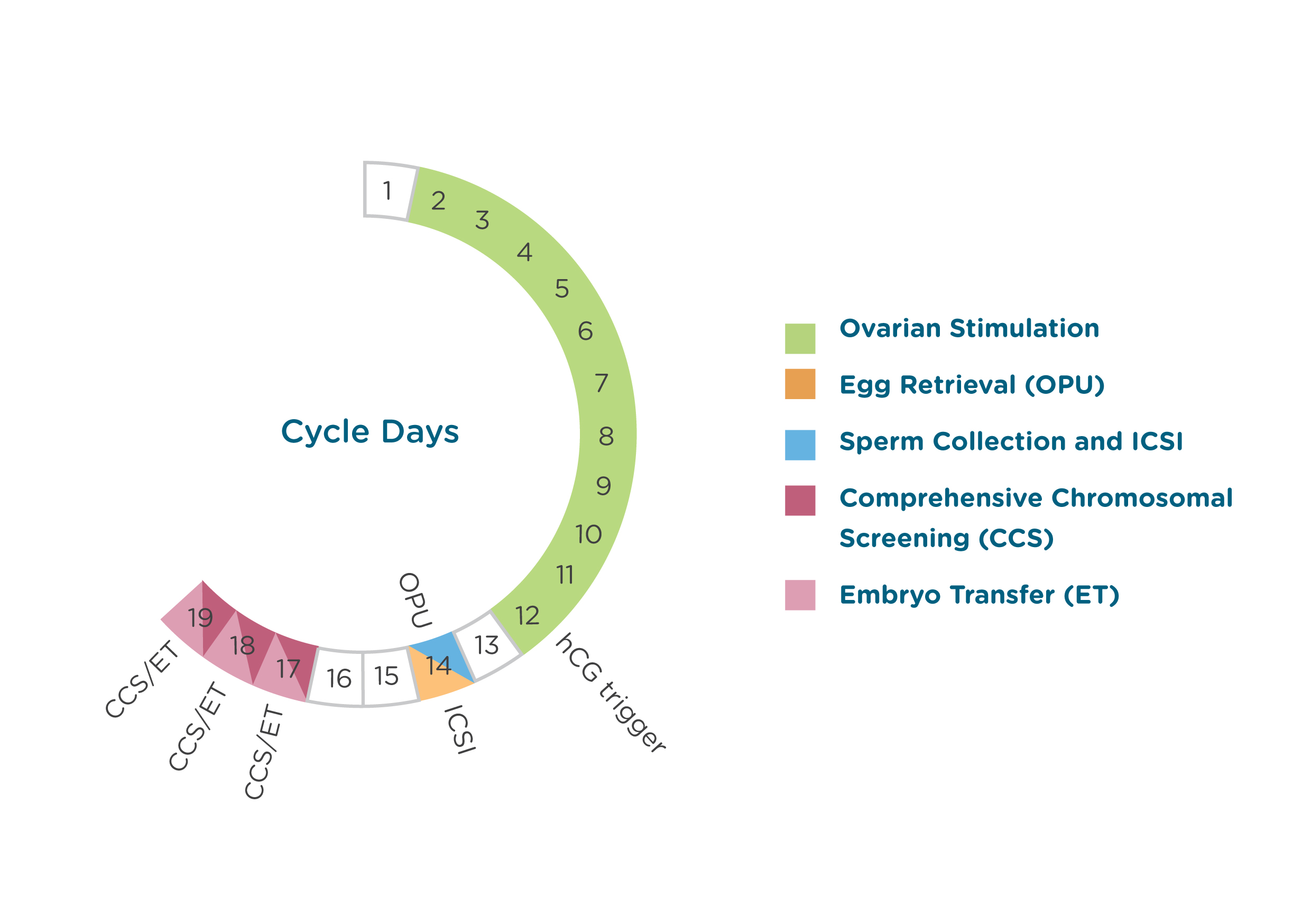Pre-Implantation Genetic Diagnosis
Pre-Implantation Genetic Diagnosis (PGD) is used when one or both parents have a known genetic abnormality and testing is performed on the embryo to determine if it carries a genetic abnormality. PGD allows for genetically normal embryos to be transferred, ensuring offspring will be free of the hereditary disease that their parents carry. Fakih IVF Fertility Center is the only IVF center in the Middle East capable of performing PGD in our in-house Genetics Lab. With locations in Dubai and Abu Dhabi and medical partners in Al Ain, Fakih IVF Fertility Center is available to help couples throughout the UAE and abroad.

What genetic diseases can be prevented using PGD?
Any genetic disease that could be passed on from parent(s) to their offspring with a known mutation can be prevented using IVF and PGD. Some of the genetic diseases that can be prevented using IVF and PGD include Cystic Fibrosis, Spinal Muscular Atrophy, Tay-Sachs Disease, Sickle Cell Anemia, Thalassemia and much more.
What are the steps and duration of an IVF journey with PGD?
Before completing PGD, the inherited disease that one or both spouses carry must be identified through genetic screening. Once the genetic disease has been identified, completing PGD with an IVF-ICSI cycle does not change the duration of treatment. Following Egg Retrieval, if the eggs are fertilized successfully, a biopsy is taken from each embryo and tested through PGD. The healthy embryos are then transferred to the uterus. The following steps take place over 15 to 20 days.

|
Ovarian Stimulation (7 to 10 days):On Day 2 or 3 of the Menstrual cycle, medication is prescribed to stimulate the growth of multiple follicles in the ovaries. During this time, follicular growth is monitored through ultrasound as they develop into eggs and hormone levels are tracked through blood tests. Medication protocols are changed as needed. 36 – 40 hours before the scheduled Egg Retrieval, an hCG “trigger” shot is given to induce maturation of the eggs within a scheduled timeframe. |

|
Egg Retrieval (OPU):Eggs are retrieved using a thin ultrasound-guided needle during a short procedure under sedation. The number of eggs retrieved depends on the body’s response to the medication. |

|
Sperm Collection and ICSI:On the day of Egg Retrieval, a semen sample is taken to fertilize the retrieved eggs. To increase chances of fertilization, a single sperm is injected into each egg using a precision needle in a method called ICSI. |

|
Pre-Implantation Genetic Diagnosis (PGD):Pre-Implantation Genetic Diagnosis (PGD) will be completed to screen embryos for a hereditary disease carried by one or both parents. 3 to 5 days after the Egg Retrieval, a biopsy is taken from each embryo and tested in the Genetics Lab. The health of the embryos is identified and discussed with you before Embryo Transfer. |

|
Embryo Transfer (ET):Embryo Transfer is a minor procedure that does not require sedation. Following the procedure, hormone levels are tracked through blood test to confirm pregnancy. |
*The above dates are an approximation of an average cycle.
Is it possible to complete Gender Selection or Chromosomal Screening with PGD?
Yes, Comprehensive Chromosomal Screening may be completed at the same time as PGD if you would like to further screen your embryos for gender or chromosomal abnormalities. Be sure to discuss this treatment option with your physician.
International Patients:
If you are living abroad, Fakih IVF Fertility Center can help you! You may begin Ovarian Stimulation in your home country and travel to the UAE to complete Egg Retrieval, Sperm Collection and ICSI, Pre-Implantation Genetic Diagnosis (PGD) and Embryo Transfer (ET). Email our International Patient Coordinator to begin your IVF journey with PGD.
If you have any questions about your medical history or would like to discuss your case with a genetic counselor, book an appointment at Fakih IVF Fertility Center today.










